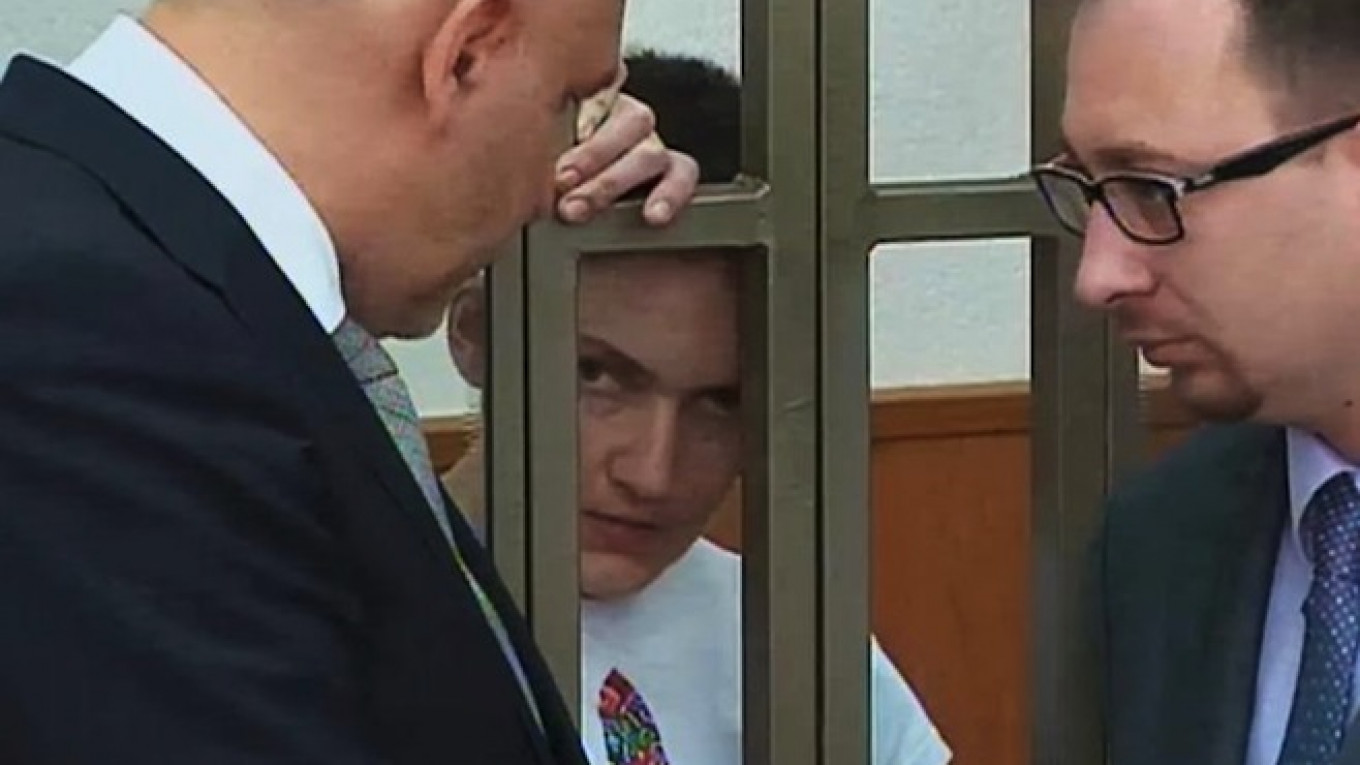 Vladimir Frolov
Vladimir Frolov
Few should be surprised that the Kremlin has floated a proposal to exchange Ukrainian pilot Nadezhda Savchenko, recently sentenced to 22 years in prison, for several Russian nationals in U.S. custody. Even if those Russian nationals included the convicted international arms trafficker Viktor Bout, who is serving a 25-year prison term for a conspiracy to supply MANPADS to a Colombian terrorist group, and the former Russian pilot Konstantin Yaroshenko, who is serving a 21-year term in a U.S. prison for drug smuggling.
The proposal is likely not politically feasible in Washington. This seems clear enough from the strong denials from the U.S. Embassies in Moscow and Kiev. Moreover, the fact that Russian officials are going public is essentially an acceptance it has failed to sell the deal. At the same time, Russia is still scoring important political points that might yet yield the desired results.
The Kremlin’s primary objective is to impress upon Washington that the United States should cease its practice of arresting Russian nationals in third countries on charges brought in the United States. These arrests are often made as a result of sting operations by undercover U.S. government agents — both Bout and Yaroshenko’s arrests were stings. Moscow has made little secret of its displeasure with such U.S. acts, which it views as an illegal extraterritorial application of U.S. law.
Moscow is making the point that the United States should no longer apply such practice to Russian nationals. And in doing so, it is resorting to the old Soviet toolbox — creating leverage to exert political cost, then offering a “fair trade.”
During the Cold War it was inconceivable that the Unites States would kidnap a Soviet citizen abroad without triggering a superpower crisis. Russian leaders see value in reverting to the full “superpower parity” mode — not only in Syria, but across the board of Moscow’s complex but important relations with Washington. It is part of the Russian game to regain “street cred” from any future administration in Washington. It is also a great sell domestically — “taking care of ours” and standing up to the U.S. bully.
The second point is to impress upon leaders in Ukraine that they would have to accept any deal negotiated between Washington and Moscow. By refusing to negotiate Savchenko’s exchange for Russian servicemen held by Kiev in the context of the Minsk agreements, and by putting the possibility of her release into the context of a bilateral U.S.-Russian negotiation, Moscow is pressing its contention that Ukraine is not really a sovereign country, but a U.S. puppet. This puts Washington into a double bind — refuse to exchange Savchenko and offend the Ukrainians, accept the Russian deal and offend them more.
This is precisely why it is hard to see Washington eventually agreeing to a deal like this. If it were a strictly bilateral U.S.-Russian matter and involved only U.S. and Russian nationals, it might have been possible to release Bout and Yaroshenko through a presidential pardon, particularly if Moscow held U.S. government agents or their Russian spies in its custody. The Soviet Union exchanged its dissidents with the United States for spies and communist leaders. And in 2010 a major spy swap secured the release of 10 Russian “illegals” arrested in the United States after an SVR defector had unmasked them.
They were exchanged for four Russians serving long prison sentences for espionage for the United States, among them former SVR officer Alexander Zaporozhsky who had betrayed Moscow’s most valuable spy in the United States — FBI agent Robert Hansen.
It would appear that there are simply not enough spies to trade around anymore. Moscow would certainly like to secure the release of Evgeny Buryakov, a Vneshekonombank official in New York arrested last year. He recently pleaded guilty to a charge of failing to register under FARA as a “Russian government agent,” and now faces up to five years in jail. But Moscow does not appear to be holding anyone of similar value to the United States, hence the trickery with Savchenko.
It is still possible that Savchenko will be exchanged for Russian servicemen in Ukraine, and perhaps for around 300 Donbass separatists now in Ukrainian prisons. Moscow may well push Kiev to pass the politically-explosive blanket amnesty included in Minsk-2 as part of the deal.
It is not inconceivable that Bout and Yaroshenko would get some relief, but not outright release as part of the Savchenko exchange. But that is perhaps not the point. The main victory for Moscow would be if the United States stopped arresting Russians abroad.
Vladimir Frolov is a political analyst.?
A Message from The Moscow Times:
Dear readers,
We are facing unprecedented challenges. Russia's Prosecutor General's Office has designated The Moscow Times as an "undesirable" organization, criminalizing our work and putting our staff at risk of prosecution. This follows our earlier unjust labeling as a "foreign agent."
These actions are direct attempts to silence independent journalism in Russia. The authorities claim our work "discredits the decisions of the Russian leadership." We see things differently: we strive to provide accurate, unbiased reporting on Russia.
We, the journalists of The Moscow Times, refuse to be silenced. But to continue our work, we need your help.
Your support, no matter how small, makes a world of difference. If you can, please support us monthly starting from just $2. It's quick to set up, and every contribution makes a significant impact.
By supporting The Moscow Times, you're defending open, independent journalism in the face of repression. Thank you for standing with us.
Remind me later.


